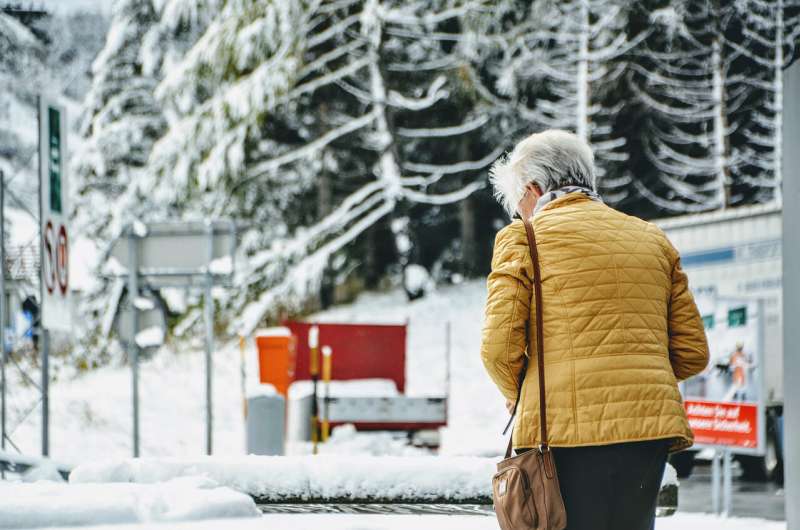Lonely and isolated – but not by choice

The unpredictable winter weather can be dangerous for anybody. It can have a greater impact on older adults who struggle with their concerns for safety against their ability to get out of the house.
"Cold weather makes it difficult for older adults to get out, especially seniors in rural areas," says Qinglan (Priscilla) Ding, an assistant professor in Purdue University's School of Nursing.
Ding, who has a clinical background focusing on gerontology – or the study and care of aging and older adults – provides several winter safety tips for older adults:
- Get nutritious food: Stocking up before bad winter weather is a good idea. But if you can't get out even in good weather, Meals on Wheels or similar nutirition programs cost a small fee for food delivered by volunteers. "The additional benefit of using one of these programs is that someone will be able to check in on the seniors," Ding said.
- Transportation: There could be transportation provided by senior centers or other nonprofit organizations to help with errands. Some communities have ride-sharing services. If you still drive, make sure your car is serviced before winter storms. "You should not try to drive at night or in bad conditions."
- Stay socially connected and active to fend off isolation: "It's important to find ways to stay socially connected," Ding said. "Family, friends, neighbors, volunteer groups, church groups, social service agencies can check in and help during the winter.
Another way to stay socially connected is to use technology, video chatting programs and other apps to stay in touch with family and friends. "Loneliness by itself can be dangerous. It can worsen depression, anxiety and fragmented sleep," Ding said.
- Stay warm: Cold weather can affect chronic diseases, such as respiratory and cardiovascular diseases. It's important to check in with your primary care provider before winter. Older adults who are at home need to monitor the chronic conditions – even if they are inside the house.
"Older adults can lose temperature rather quickly and not be aware of it," Ding said.
If body temperature falls below 95 degrees, the person could have cold hands and feet, slowed speech, breathing and heart beats. In severe cases, the older adults should call 911 to be medially treated.
Older adults should wear additional layers of clothes or turn up the furnace settings. If an older adult is concerned about the heating bill, there are organizations and utilities that energy support programs in place to help pay winter heating bills.
- Stay safe: Falling is dangerous for older adults. "You can have someone shovel your driveway and sidewalks and spread salt for additional safety," Ding said.




















